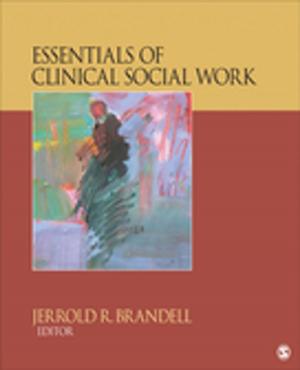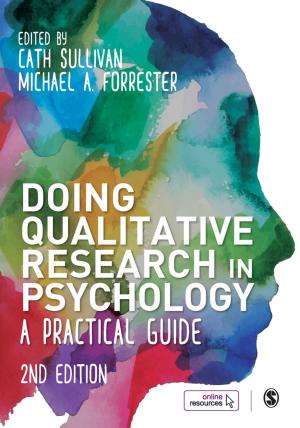Psychosocial Criminology
Nonfiction, Social & Cultural Studies, Social Science, Crimes & Criminals, Criminology| Author: | Tony Jefferson, David Gadd | ISBN: | 9781446234822 |
| Publisher: | SAGE Publications | Publication: | September 18, 2007 |
| Imprint: | SAGE Publications Ltd | Language: | English |
| Author: | Tony Jefferson, David Gadd |
| ISBN: | 9781446234822 |
| Publisher: | SAGE Publications |
| Publication: | September 18, 2007 |
| Imprint: | SAGE Publications Ltd |
| Language: | English |
'This is a well written, thought provoking, and highly challenging book for anyone who claims to be a criminologist or for whom crime is of central concern. It should be required reading on all undergraduate and post-graduate criminology courses. A truly innovative take on some well established criminological dilemmas.' - Sandra Walklate, Eleanor Rathbone Chair of Sociology, University of Liverpool
What makes people commit crime?
Psychosocial Criminology demonstrates how a psychosocial approach can illuminate the causes of particular crimes, challenging readers to re-think the similarities and differences between themselves and those involved in crime.
The book critiques existing psychological and sociological theories before outlining a more adequate understanding of the criminal offender. It sheds new light on a series of crimes - rape, serial murder, racial harassment , 'jack-rolling' (mugging of drunks), domestic violence - and contemporary criminological issues such as fear of crime, cognitive-behavioural interventions and restorative justice.
Gadd and Jefferson bring together theories about identity, subjectivity and gender to provide the first comprehensive account of their psychoanalytically inspired approach. For each topic, the theoretical perspective is supported by individual case studies, which are designed to facilitate the understanding of theory and to demonstrate its application to a variety of criminological topics.
This important and lucid book is written primarily for upper level undergraduates, postgraduates and teachers of criminology. It is particularly useful for students undertaking a joint degree in criminology and psychology. It will also appeal to critical psychologists, psychoanalysts, students of biographical methods and those pursuing social work training.
David Gadd is Senior Lecturer in Criminology at Keele University.
Tony Jefferson is Professor of Criminology at Keele University.
'This is a well written, thought provoking, and highly challenging book for anyone who claims to be a criminologist or for whom crime is of central concern. It should be required reading on all undergraduate and post-graduate criminology courses. A truly innovative take on some well established criminological dilemmas.' - Sandra Walklate, Eleanor Rathbone Chair of Sociology, University of Liverpool
What makes people commit crime?
Psychosocial Criminology demonstrates how a psychosocial approach can illuminate the causes of particular crimes, challenging readers to re-think the similarities and differences between themselves and those involved in crime.
The book critiques existing psychological and sociological theories before outlining a more adequate understanding of the criminal offender. It sheds new light on a series of crimes - rape, serial murder, racial harassment , 'jack-rolling' (mugging of drunks), domestic violence - and contemporary criminological issues such as fear of crime, cognitive-behavioural interventions and restorative justice.
Gadd and Jefferson bring together theories about identity, subjectivity and gender to provide the first comprehensive account of their psychoanalytically inspired approach. For each topic, the theoretical perspective is supported by individual case studies, which are designed to facilitate the understanding of theory and to demonstrate its application to a variety of criminological topics.
This important and lucid book is written primarily for upper level undergraduates, postgraduates and teachers of criminology. It is particularly useful for students undertaking a joint degree in criminology and psychology. It will also appeal to critical psychologists, psychoanalysts, students of biographical methods and those pursuing social work training.
David Gadd is Senior Lecturer in Criminology at Keele University.
Tony Jefferson is Professor of Criminology at Keele University.















